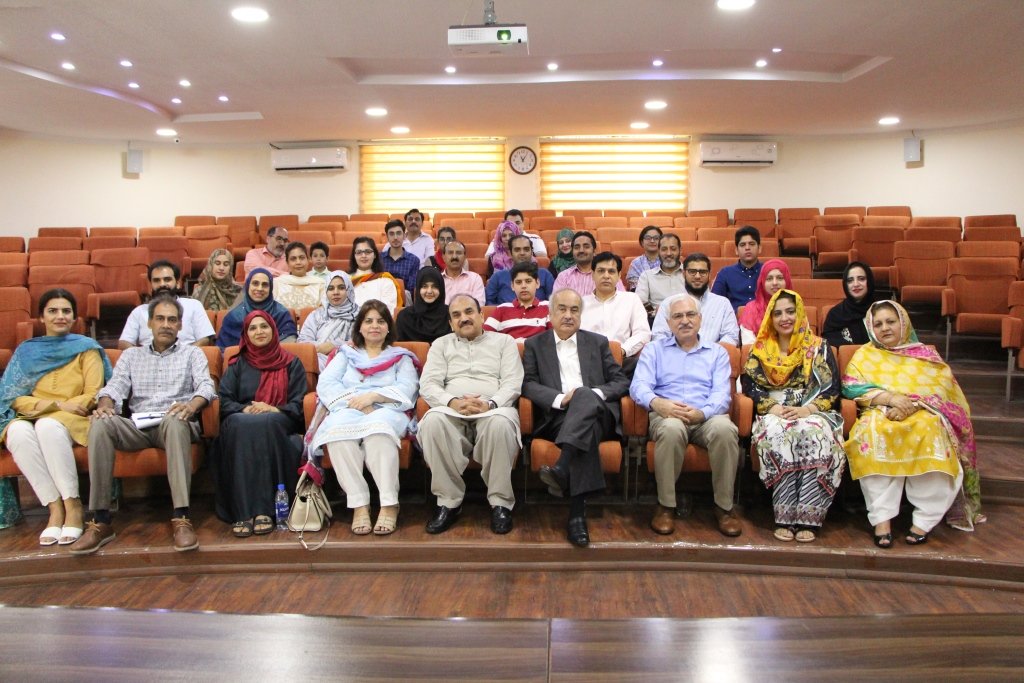Institute of Administrative Sciences (IAS), University of the Punjab proves to be the hub of research and development in the areas of public administration and management. IAS has produced many indigenous PhDs since year 2001 whereas nearly 35 Ph.D. scholars are still enrolled for this academic journey. IAS has 11 Doctoral faculty members serving as regular faculty members whereas, 5 are near to complete their PhD in foreign countries. Raising the bar of the output of its research programs, IAS is proud to share the dissemination of PhD work by two PhD scholars; Ms Labiba Sheikh and Ms. Shabana Naveed that was organized as Thesis Defense at IAS on 1st July 2019.
Professor Dr. Nasira Jabeen- Dean FEMS & Director IAS welcomed the dignified academicians; Professor Dr. ZafarUllah, Former Pro-rector, University of Central Punjab, Lahore and Former Vice Chancellor, BZU, Multan, Professor Dr. Mehmood Ahmed Bodla, Director, Foundation University, Sialkot; Professor Dr. Zafar Iqbal Jadoon, Dean Faculty of Economics and Management Sciences, University of the Punjab and Dr. Yaamina Salman as external examiners and Ph.D. research supervisors. Faculty members; Mrs. Sajda Nisar – Incharge Director IBA, Dr. Sobia Khurram, Ms. Aisha Rizwan, Dr. Ghalib Ata, Dr. Amani Moazzam, Dr. Ali Rehman, Ms. Iman Saleem, Ms. Urooj Qamar and some PhD students and other faculty members and guests attended the event. Professor Jabeen congratulated both PhD Scholars for presenting their work and achieving a major milestone in the academic and professional journey.
Ms. Labiba Sheikh presented her case study work on: “Autonomy of Regulatory Agencies in Pakistan”. Her research examined the patterns of autonomy and control that exist in regulatory agencies in Pakistan and the factors that can explain the level of autonomy of these agencies. The findings of the research revealed a fairly high level of autonomy for these agencies in terms of policy autonomy, managerial autonomy and financial autonomy. However, the structural autonomy seems to be compromised and interventional autonomy is found to be fairly low.
Ms. Shabana Naveed presented her research work on: “Managing Complexity in Governance Networks: The Case of Energy Sector in Pakistan”. Her study addresses how public organizations experience and manage institutional complexity in the contemporary network arrangements in the public sector. The study finds that diverse reform trajectories have exposed the energy sector to three competing institutional logics including traditional public administration (TPA) logic, new public management (NPM) logic and new public governance (NPG) logic, exposing the public organizations to institutional complexity. Additionally, under NPM-based fragmentation and NPG-based integration reforms, there is drastic shift in energy sector from vertically integrated bureaucracies to a web of autonomous organizations working in governance networks which requires a well thought out complexity management policies and reform. Both dissertations will soon be available at IAS Library for study purpose.




